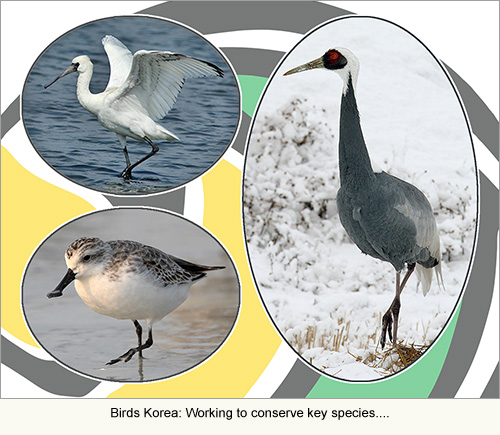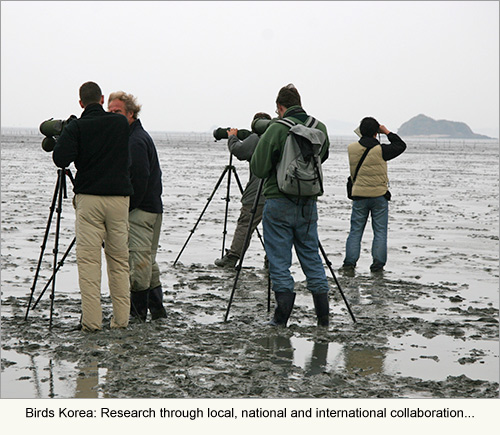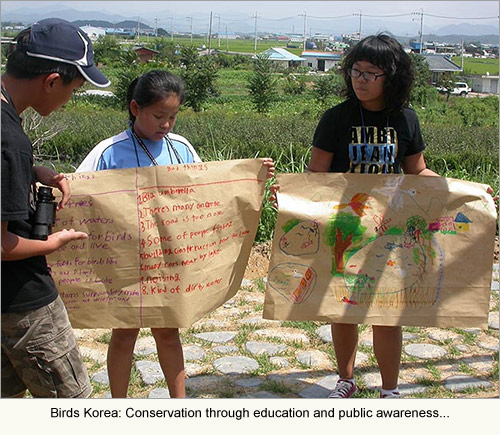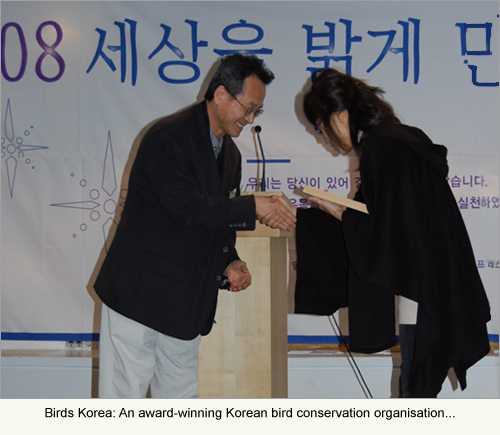Birds are beautiful and their migrations link countries and people together. Both here in the Republic of Korea and globally, there is a growing awareness about the need to “go green.” As elsewhere, dedicated organisations and individuals are hard at work for the environment and there have already been some notable conservation success stories. Over the past few decades these have included nation-wide reforestation, a massive reduction in illegal hunting and the designation of some of the Geum Estuary as protected wetland rather than as an industrial complex. All the same, many habitats – big and small – are still under threat from unsustainable development and many of the nation’s more than 515 recorded bird species are in decline. Some, like the Eurasian Magpie remain numerous though in much reduced numbers compared with a decade ago; others like the Spoon-billed Sandpiper are faced with imminent global extinction. The ongoing declines in these species should be of great concern to everybody. Not only is each species important in its self. Their declines also indicate the failing health of natural ecosystems which are depended upon both by people and also by birds and other wildlife. Of course, our world and our futures are intertwined.
Although a still small non-governmental organisation, the mission of Birds Korea is by necessity huge: to help conserve these birds and our shared habitats, here in Korea and in the wider region. We work to support people and the nation by providing best information both in Korean and in English, locally, nationally and, especially because so many bird species are migratory, internationally too. We conduct research, propose science-based recommendations and plans, present at schools and meetings, and do all that we can to help people understand and value the (natural) world around us. With our support (and of course, the support of other organisations both governmental and non-governmental), a growing number of people do now understand better and love birds and wildlife. Many nationally and internationally important sites and the threats to them have been identified, and conservation solutions are being proposed. And importantly too, public awareness generated through such work is helping to provide the kind of essential support that is needed by decision-makers if they are to conserve habitats and to fulfil existing national and international conservation obligations.
As another new year begins, Birds Korea would like to take this opportunity to thank again our members and supporters. We hope that everyone can share pride in our record, including our winning two national awards (in 2008 and 2011), and in our plans for 2013 and 2014. Although we have done much, we know that we need to do much, much more for birds and their habitats as well as for our membership. For this, we need your continuing support and the support of new members. Please join us; please get involved.








